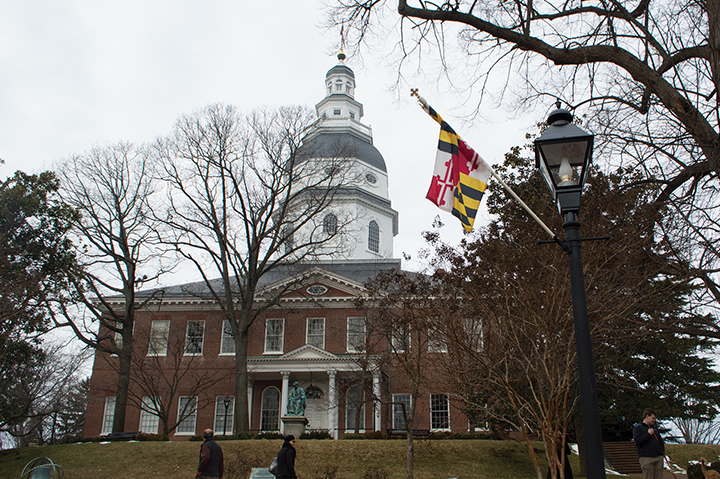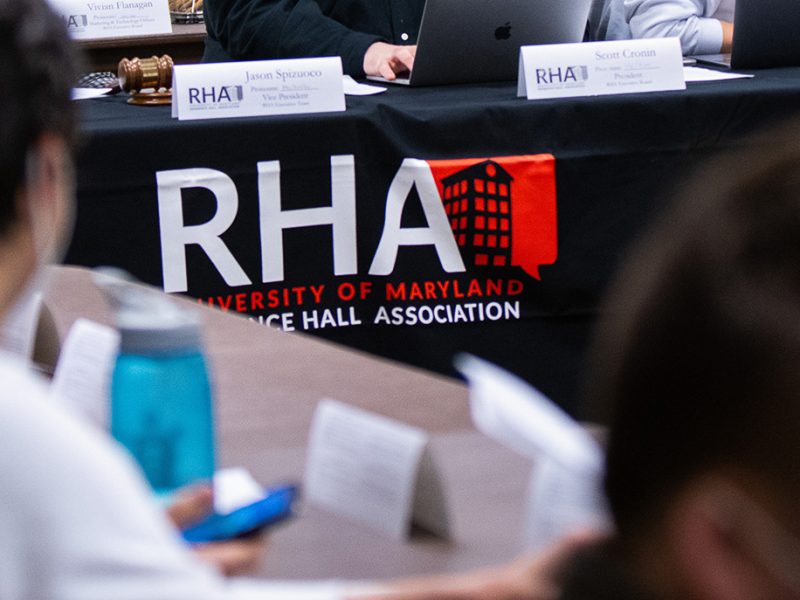After more than a decade of failed attempts, the Maryland General Assembly passed legislation allowing prosecutors to use suspects’ previous predatory behavior as evidence in trying sex offense cases.
The bill, called the Repeat Sexual Predator Prevention Act, allows evidence of past “sexually assaultive behavior” — including a past sex crime or sexual abuse of a minor or vulnerable adult — to be admitted as evidence 90 days before the trial for a sex crime. Evidence of past sexually assaultive behavior may also be submitted to prove a lack of consent and disprove allegations of fabricating sex abuse, according to the bill, which is now headed to Gov. Larry Hogan’s desk for approval.
[Read more: Maryland Gov. Larry Hogan will review three gun control bills]
Sen. Jim Brochin (D-Baltimore County) championed the Senate version of the bill, which received more than 100 co-sponsors this session and passed unanimously through both chambers of the General Assembly. Del. Vanessa Atterbeary (D-Howard), who sponsored the House version of the bill, called its passing “monumental.”
The bill adds an additional “tool in the tool kit” to help prosecutors convict known abusers, said Laura Dunn, the founder of SurvJustice, a nonprofit for sexual violence survivors.
“It gives the state’s attorney the ability they have been looking for for quite some time to bring these histories to light in appropriate situations and in consideration of due process protections,” said Dunn, an adjunct law professor at the University of Maryland Francis King Carey School of Law.
[Read more: A bill banning conversion therapy is heading to Gov. Hogan’s desk]
Baltimore City State’s Attorney Marilyn Mosby has testified in favor of the bill for the past five years. It closes a loophole for past sex offenders and draws Maryland closer to matching the Federal Rules of Evidence, which allows evidence of past predatory behavior to be introduced in federal cases, she said in an April 5 news release.
But some legal experts, including Rachel Bennett — an assistant public defender in the Maryland Public Defender Office’s Misdemeanor Jury Trial Division — disagree with the bill’s intent. Bennett called the bill “misguided,” as submitting past evidence could bias juries and affect due process.
“In general, there is a very strong principle that if someone is being prosecuted and tried for one particular crime, you don’t go and say, ‘Well, what is every other crime on their record?'” Bennett said. “To convict somebody of … the most serious types of crimes, it seems that those due process safeguards — that’s when they’re the most important.”
Dunn said this mindset ignores that the state’s criminal justice system has systematically failed at addressing sexual violence, pointing to low reporting and conviction rates for sex crimes. About 30 percent of rapes are reported to police, and less than one percent of rapes result in a conviction, according to the Rape, Abuse and Incest National Network.
“As long as there are attorneys on every side of the issue, there are always going to be defense attorneys arguing to limit information available to the prosecutors, juries and judges,” Dunn said.
Nikki Wolfrey, a member of University of Maryland student group Preventing Sexual Assault, supports the legislation because it protects victims of sex crimes.
“Anything that can help achieve justice for people who are survivors of sexual assault or sexual violence should be put forward,” the senior government and politics major said. “[Victims of sex crimes] are already such a marginalized population.”



